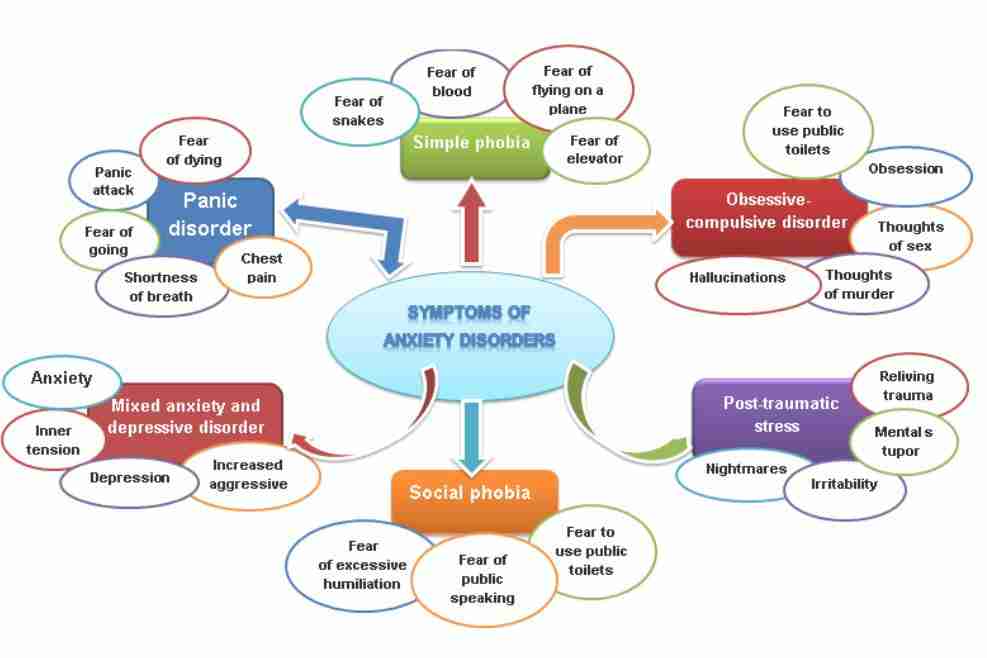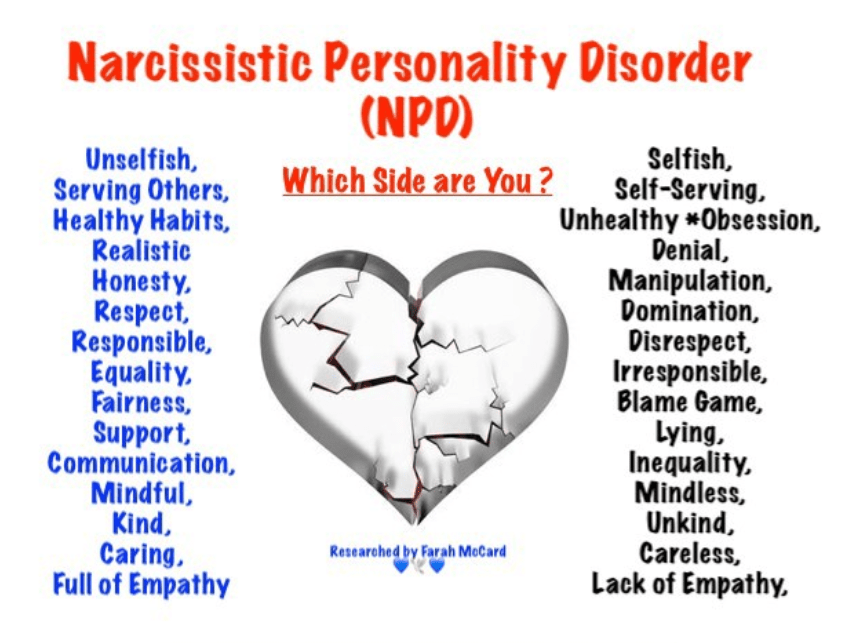Fear of success phobia
What Is a Fear of Success?
At first blush, fear of success doesn’t sound like much of a fear. But it’s very real and it can hold you back in a big way.
It’s probably not success itself that you fear, but the potential price of success. Sometimes, it’s your own behind-the-scenes manipulations that keep tripping you up on the road to success.
Keep reading to learn more about fear of success, where it comes from, and how to overcome it.
Fear of success is when you have an ongoing fear of succeeding, so much so that you might be inadvertently self-sabotaging.
It’s not that you think you’re incapable of succeeding. It’s more about the fear of change that may come and whether you’re up for it. For example:
- You might get extra attention, but you’re shy or introverted and uncomfortable with the spotlight.
- Public success may bring social or emotional isolation.
- Your achievement might alienate your peers.
- People might think you’re bragging or self-promotional.
- You fear being knocked off the pedestal you didn’t want to be on in the first place.
- Success may not be all it’s cracked up to be.
- Success might change you, but not for the better.
Fear of success can be easily confused with fear of failure because either one can keep you from reaching your full potential.
Fear of failure has to do with beating yourself up when you think you’ve bombed out. Fear of success is more about anticipating how other people will react to your triumph.
Fear of success can also be referred to as “success anxiety” or “success phobia.” It’s even been called “achievemephobia.” Whatever you choose to call it, it’s associated with a negative impact on overall life satisfaction.
Fearing the consequences of success can manifest in subtle and obvious ways, such as:
- Low goals. You set the bar low to keep yourself from being challenged.
- Procrastination. You stall just enough to let opportunity pass.

- Perfectionism. You strive for perfection and when you inevitably fall short, that’s reason enough not to proceed.
- Quitting. Just when you’re on the verge of success, you find a reason to quit.
- Self-destructiveness. Substance abuse and other self-destructive behaviors may serve to derail success.
Any of these behaviors can keep you from realizing your full potential.
Being afraid of success can cause mixed emotions. A 2001 study on the subject involved athletes and performing artists who reported feeling:
- guilt over asserting themselves in competition
- anxiety about surpassing a record established by another performer
- pressure over repeatedly having to equal or surpass your own best performance
The reasons for developing a fear vary from person to person and can be rather complex.
Backlash avoidance
Researchers call it “backlash avoidance” when traditional gender roles lead to a fear of success. In many cultures, men are applauded for their successes while women who achieve the same thing are socially penalized.
In many cultures, men are applauded for their successes while women who achieve the same thing are socially penalized.
Women are discouraged from appearing self-promotional or aggressive in favor of modesty and compliance with gender norms. Some women fear that success will lead to attacks on their femininity or being labeled unlikable and underserving.
Imposter syndrome
Even people who appear confident can have their doubts. When success comes with increased attention, you may wonder if you can live up to expectations. What if they don’t think you deserve it? What if they think you’re a fraud? Fear of success can be fear of being knocked off an imaginary pedestal.
Imposter syndrome isn’t a psychiatric diagnosis. This phenomenon is experienced equally by men and women and frequently coexists with depression and anxiety.
Childhood experiences
Childhood experiences stick with us for life, though we’re not always aware of it. If, as a child, you were belittled for success or scolded for showing off, it probably knocked the wind out of your sails. You learned to avoid success rather than face the negativity. Childhood trauma is a perfect setup for fear of success that continues into adulthood.
You learned to avoid success rather than face the negativity. Childhood trauma is a perfect setup for fear of success that continues into adulthood.
Mental health conditions
Fear of success isn’t necessarily connected to a particular mental health condition. However, fear of success may coexist with conditions such as post-traumatic stress disorder (PTSD) or generalized anxiety disorder (GAD).
It’s hard to say how many people have a fear of success because it’s incredibly easy to overlook. You might think you’re a procrastinator or perfectionist without connecting it to fear of success. You may be reluctant to talk about it, not recognize it as a problem, or confuse it with fear of failure or general anxiety.
You might even have a mild fear of success, but not to the degree that it prevents you from getting where you want to go.
If you’ve identified your fear of success, you’ve taken the first step. From here it may take trial and error to find the strategies that work for you, but here are some ways to get started.
Explore the origins
You’ve acknowledged the fear. Now examine your past experiences with success, going back to your childhood to figure out how you got here. Think about earlier successes and what happened as a result.
Note how it manifests
Consider how fear of success shows itself. It may be helpful to make a list of all the ways you’ve been sabotaging your path to success. Writing it down will help put it all in focus. Identifying these behaviors means you can start counteracting them.
Visualize success
Success is complicated. What does it mean to you? Visualize success with the idea that it’s not likely to be all roses and sunshine. Nothing’s perfect. So, what are the potential positives and negatives? Imagine achieving your goal, what may happen as a result, and different ways you might deal with it.
Manage stress and anxiety
Stress and anxiety may be contributing to your fears. Here are some lifestyle strategies that may help:
- Eat well.
 Aim for a balanced diet that provides all the necessary nutrients. Don’t skip meals.
Aim for a balanced diet that provides all the necessary nutrients. Don’t skip meals. - Avoid junk food. Go easy on alcohol, caffeine, and highly processed foods.
- Relax. Make time to kick back every day to read, soak in the tub, or whatever helps you wind down.
- Exercise. Some physical activity every day is important to overall good health. Join a class or enlist an exercise buddy if it makes it easier to stay on track.
- Socialize. Share a few laughs, talk things over, and hold your support network close.
- Volunteer. Helping others is a great way to distract from your own fears.
- Write it down. Journaling can help you get in touch with your feelings and gauge your progress.
Get professional help
Overwhelmed and can’t get a handle on things? Consider seeing a professional therapist who can help you cope with fear of success. You may benefit from cognitive behavioral therapy (CBT). CBT can help you learn to view success differently and practice alternative ways of handling fear.
You may benefit from cognitive behavioral therapy (CBT). CBT can help you learn to view success differently and practice alternative ways of handling fear.
Tips for dealing with success anxiety
When success anxiety starts ramping up, try these in-the-moment coping strategies:
- Take a time out. Back away from your stressors for a few moments to relax and let go. Listen to your favorite song or just sit and chill.
- Count to 20. A gentle counting exercise can help you slow things down and clear your mind.
- Breathe. Close your eyes and take 10 slow, deep breaths. Focus on your breathing to calm body and mind. Repeat as many times as necessary.
- Walk. Change the scenery and let your mind wander.
- Call a friend. A little give and take with a friend can help take the edge off.
Fear of success can be obvious or it can lurk beneath the surface so you don’t recognize it for what it is. Either way, it’s a genuine fear that can come at great personal cost.
Either way, it’s a genuine fear that can come at great personal cost.
If you’re scared of success and its consequences, recognizing it is step one. There are a few things you can do right now to start combating this fear. Or, a therapist can help you learn to embrace the changes that come with achieving your dreams.
Why We’re Sometimes Afraid of Being Our Best
Jump to section
What is the fear of success?
6 ways fear of success shows up in our lives
How do you identify the fear of success?
8 causes for fear of success
What are the consequences?
What can you do about it?
Be gentle with yourself
Sometimes, it feels like success eludes us no matter what we do. We think that if we just got to that next level, things would all work out. But even though we’re doing everything right, something just doesn’t click.
When that happens, it may be that we unconsciously have a fear of our own success. But why would we be afraid when we’re working so hard to be successful? Learn what the fear of success is, what causes it, and how to identify and overcome it.
What is the fear of success?
Fear of success is the concern that once we achieve something new, we’ll be incapable of sustaining it or may suffer because of it. Most of the time, we’re not consciously aware of this fear. That’s because when we focus on a goal, we talk up the positive outcomes of achieving the goal. Rarely do we share with others what might happen when we get to that next level.
Fear of success is not necessarily the fear of reaching that deeply personal achievement unique to each individual. Instead, it is most often the fear of the possible change or consequences of success. It is an anticipation of how others — and oneself — will respond to the triumph. The concern is that achieving success will come at the cost of something else valued in one's life. In many ways, it's similar to the fear of failure.
Sometimes the fear of success can be apparent to a person. Other times it can lie just below the surface, noted in patterns of thought and/or actions repeated by the individual. It takes a high level of self-awareness to identify your own fear of success.
It takes a high level of self-awareness to identify your own fear of success.
6 ways fear of success shows up in our lives
Fear of success can manifest in different ways. Here are a handful of characteristics to be aware of:
Avoidance
The person may avoid being the center of attention, being praised, or use other avoidance strategies.
Procrastination
The person may delay starting and/or completing a project. As a result of procrastinating, the opportunity may be missed altogether, or the end product may be lackluster.
Perfectionism
The person may believe they are keeping the bar high. But by holding an impossible standard of perfection, the outcome will inevitably be disappointing.
Quitting
The person may find an excuse to quit just before the goal is in sight, over and over again.
Self-sabotage
The person may set obstacles in their own way or stay in unhelpful situations.
Self-destructiveness
At its worst, the fear of success may involve self-destructive behavior. Left unchecked, that derails any real opportunity for success.
Left unchecked, that derails any real opportunity for success.
How do you identify the fear of success?
Fear of success can manifest in the following symptoms:
Anxiety
The person anticipates the future consequence of their success. Perhaps they worry about being in the spotlight or leaving loved ones behind in pursuit of their success. They might be afraid that success will make things too complicated. They may also worry that critics will talk badly about their work, and that success won't be like anything they imagined.
Guilt
The person may experience a sense of guilt at possibly taking the highest score from someone who held the record for the past ten years. They may be concerned that their light will outshine another who is equally deserving and feel a sense of shame.
Discomfort
People may feel uncomfortable pushing themselves towards goals that still require some growth. This might include anything out of their comfort zone, like public speaking or coming up with their first-ever strategic plan.
Pressure
The person may feel the pressure to have another project in line. They may feel that they have to follow up on this one success with another even better success, and in less time than the first.
Lack of motivation
Sometimes, people who are afraid of success seem lazy, lacking motivation, and having low expectations. Their fear prevents them from ever making progress towards their goals.
Consider the following examples of how fear of success manifests:
-
- The writer who can’t stop editing their book, worries about the response of critics, and how they will follow up this book with the next
- The woman whose childhood wins served to highlight her brother’s losses
- The investor who lost large sums of money in a restaurant investment and plays it small, not wanting to “lose it all” again
- The entrepreneur who is afraid of growing their business because they doubt whether they can support the growing team year after year
- The musician who loves the flow of creating music in private but fears performing the piece in public if he were to receive recognition
8 causes for fear of success
There can be many reasons for a person's fear of success, many of them that have built up over a lifetime:
1.
 Childhood experience
Childhood experienceA childhood experience can negatively impact people on their road to success. If a person had the repeated experience of being taunted for receiving praise in childhood, they might avoid the spotlight. If as a child, their work was never acknowledged or seen as good enough, they might become perfectionists — which is inherently set up for failure.
Childhood experience is deeply ingrained in our neural pathways. The person may expect a negative outcome that has its roots in a playground or sibling experience.
2. Impostor syndrome
A lifetime of self-doubt can lead to a fear that one's achievement will be lacking compared to others. A person may fear not being able to live up to expectations (whether theirs or someone else’s) and being found out as an "impostor." Imposter syndrome makes it hard for the person to see that their skill, knowledge, and/or hard work has brought them to the place of accomplishment.
3. Misinterpreting feelings
The feelings of excitement, nervousness, and anxiety result in similar physical responses. A person may interpret one as the other and want to avoid the feeling altogether.
A person may interpret one as the other and want to avoid the feeling altogether.
4. Backlash avoidance
People may worry about social repercussions, especially if their success goes against expected norms. A writer may worry about the consequence of their article's cultural critique. Women may be discouraged by the social repercussions of surpassing their male colleagues.
5. Negative experience
An unfavorable outcome to past success may make a person wary of future success. Perhaps collaborators shunned the person for "hogging the limelight." The person may be concerned that future success will mimic that previous response.
6. Poor self-efficacy
The person does not believe that they can achieve the goals they have set for themselves on route to success.
7. Introversion
A person may prefer not to be the center of attention in general. They may shy away from the attention they’ll draw to themselves due to the success.
8. Mental health
Clinically diagnosed mental health conditions like post-traumatic stress disorder (PTSD) or generalized anxiety disorder (GAD) can exacerbate the fear of success.
What are the consequences?
Fear of success can hold a person back from achieving their potential — and the accompanying sense of fulfillment in doing so. It can make a person feel stuck and wonder why they feel that way when others around them appear to be flourishing. They may consider what has held them back. Perhaps they take the first step, and then give up when they consider the long road ahead of them. This negatively impacts overall life satisfaction, which affects both personal and professional life. The limiting thoughts result in behaviors that undermine authenticity and satisfaction.
What can you do about it?
If the above sounds like you, consider some of the below approaches to working through your own potential fear of success.
1. Be curious and aware of your thoughts and actions
What are the messages that play over and over in your mind? Is it the cheerleader? The naysayer? The fear-monger? Or all of them at once?
What are your responses to those messages? How do they inform your actions?
2.
 Start a journal
Start a journalJournaling can help you track and deeply connect with your thoughts and your response to the world.
In the journal, write:
- What is your vision of a life well-lived?
- What are your greatest hopes and fears in accomplishing that vision?
- What are the best and worst outcomes of achieving success-your life vision? How do you imagine you would respond to both?
3. Reflect
Consider the possible fear of success and how it has shown up for you in the past and present. Do you fear a negative outcome resulting from your success?
4. Acknowledge the fear
By doing so and writing it down, you bring it into the center of your attention.
5. Explore the origins of that fear
Was it something that happened in childhood or adulthood? What message did you take away from your past experiences? What would your life look like if you never pursued this vision of success at all?
Review your journal every week. What are the consistent themes and patterns? By identifying patterns related to success in your thoughts and behaviors, you can begin counteracting them.
What are the consistent themes and patterns? By identifying patterns related to success in your thoughts and behaviors, you can begin counteracting them.
Once you identify your negative beliefs and self-talk, you can consider how you can reframe them into generative and empowering beliefs. Sometimes, we can get stuck in our thoughts, so working with a coach can be helpful in creating an alternate response.
6. Visualize success
Visualize yourself being able to navigate both the potential positive and negative outcomes.
7. Self-care
Manage stress and anxiety by taking care of your mind and body. Exercise, eat healthy food, take the time to relax and sleep and enjoy the company of friends and family.
Practice mindfulness and navigate the world with an awareness of how you respond to your circumstances. Deep breathing can give you space to navigate a difficult emotion or thwart a negative, reflexive response when you feel stressed. Focusing on your mental fitness and physical well-being will help you proceed thoughtfully in the world.
8. Self-awareness
Be aware of your discomfort. Sit with the feelings and consider the origin. Is the feeling in service or of disservice to you? How can you adjust your approach?
Be gentle with yourself
The fear of success is very real. With awareness of its impact over time, a person can work to counteract the thoughts and behaviors holding them back and achieve success. The work can be done alone, but often the insights of a coach or therapist can be beneficial in doing the deeper dive. It's not until we start learning from our failures when change happens.
Consider partnering with a coach who can support and challenge you in self-exploration. Once you have uncovered the root of your fear of success together, the coach can help you remain accountable to yourself. They'll cheer you on as you begin to achieve success — and challenge you when old thought patterns and actions rear their ugly head!
If fear of success is causing you distress or disrupting your everyday life, consider seeking the services of a therapist. A therapist familiar with cognitive behavioral therapy (CBT) can assess how negative thought patterns result in maladaptive (unhelpful) behavior. They are trained to work with you to counteract these thoughts with positive ways of thinking and approaching your vision of success. Psychodynamic therapy can help you dive into the unconscious influences of your past. Sometimes, it's something under the surface that hinders our efforts to achieve success.
A therapist familiar with cognitive behavioral therapy (CBT) can assess how negative thought patterns result in maladaptive (unhelpful) behavior. They are trained to work with you to counteract these thoughts with positive ways of thinking and approaching your vision of success. Psychodynamic therapy can help you dive into the unconscious influences of your past. Sometimes, it's something under the surface that hinders our efforts to achieve success.
Remember, it is a life-long journey. Be patient with yourself as you work to unravel the fear, and reconstruct it with a positive expectation of your upcoming success.
What is the fear of success, how not to be afraid of change, how to change your life - October 19, 2020
Narrated by Mintimer Missarov, general practitioner, psychotherapist.
For many, such a headline causes internal denial: most of us do not believe that we are afraid of success, or do not want to earn a lot of money, get a dream job and change our lives 180 degrees. nine0003
nine0003
Imagine a promising athlete who fails to peak and suddenly performs poorly. Or a businessman who does not expand his business, always puts off negotiations, avoids active actions, although he has long wanted to sell franchises. Another example: a manager who feels he can move up the corporate ladder but constantly avoids talking to management.
Most likely, none of them suspects that "fear of success" interferes. A person is not afraid of success itself, but of the consequences: new tasks, difficulties, the level of responsibility. The athlete is afraid that, in the status of the champion of the country, he will not withstand more serious competitions and a possible mistake. A businessman understands that with the expansion of the business, possible conflicts, criticism, envy, negativity and competition await. The manager imagines himself in a high position and assumes that the complexity of tasks will increase, new skills will be required that will have to be learned. nine0003
nine0003
How the fear of success manifests itself
shutterstock.com- you are not acting in the right direction or you are doing it passively;
- spend a lot of time on Instagram, VK, Facebook;
- constantly feel procrastination and laziness;
- make plans for the day/week/month/year but don't follow through;
- you don't finish what you started: you have a lot of work "tails" behind you, you work on several projects, but not very efficiently;
- even New Year's resolutions contain the same items: join a gym, learn Spanish, go to a dance, visit a new country, get a dream job; nine0024
- often engage in self-criticism, feel guilty, ashamed;
- feel guilty for any, even the smallest achievements, if friends, relatives or colleagues did not achieve the same;
- you do not tell anyone about your successes and are even embarrassed about it.
Where fear comes from
shutterstock. com
com In 1972, a study (Horner, 1972) found that women were more susceptible to fear of success. But in 1975 (Wheeler, 1975), researchers confirmed that men and women are equally susceptible to this phenomenon. Fear leads to feelings of anxiety, guilt and shame, a feeling of unfulfillment and criticism from relatives who do not always understand. nine0003
It is better to look at such fears, anxieties, phobias from the position of cognitive-behavioral psychotherapy. Today it is the most scientifically based method of psychotherapy. For example, abroad, insurance companies allocate funds for this particular method in order to help people as quickly and efficiently as possible, guided by research results.
Cognitive behavioral therapy states that our emotions and sensations are the result of a person's perception of a particular situation. Consider the example of two friends who were bitten by a dog in childhood. On a walk, seeing the same big dog, one friend will experience joy and tenderness, and the other fear and desire to bypass it. The reason is the different settings of each of them. nine0003
The reason is the different settings of each of them. nine0003
What attitudes underlie the fear of success
shutterstock.com“If I make a serious mistake, I will be a failure.” The athlete from the first example imagines that if he becomes more successful, then he will not have the right to make a mistake, because he can become a failure in his own or others' eyes. Therefore, he avoids success and postpones active actions.
“If I become famous, negativity will fall on me, which I can’t handle!” A businessman does not expand his business, because great fame will bring into his life those who have a negative attitude towards his activities. He is afraid of negativity, tries to avoid conflicts, because he does not believe in himself. nine0003
"I'm not capable enough to deal with life's big problems." The manager does not move to a more profitable position - he doubts that he will cope with the new challenges of work.
The deepest work on any fears occurs at the level of working with attitudes: CBT psychotherapy offers various techniques for changing attitudes. High-quality work is done together with a therapist, but there are ways that help work through the fears of success on your own. nine0003
Ways to overcome the fear of success
shutterstock.com- Find and acknowledge fear
Often people with a fear of success experience a lot of shame and irritability. To get rid of it, you need to sincerely and openly look at your feelings, thoughts and actions and ask yourself questions: am I avoiding success, procrastinating, postponing important steps in achieving goals? What is the reason for postponing life for later? Am I afraid of the consequences of a successful life? Treat yourself with understanding: this will reduce shame, irritability, which will make you more relaxed and harmonious. nine0003
- Identify what keeps the fear of success alive
Notice the avoidance strategies that keep the fear of success alive: unwillingness to take responsibility for important projects; constant lateness to work, poor performance of tasks, avoidance of the society of active and successful people, so as not to experience the pressure of the spirit of competition. Note and write down avoidance strategies that keep the fear of success alive.
Note and write down avoidance strategies that keep the fear of success alive.
- Keep going
Once you have a list of avoidance strategies, take it easy. Start small: reduce the time you are late. If you used to be 20 minutes late, get to 10 minutes late. Further - more: the fear of success lives for decades, so it will take time to reprogram the brain.
To summarize: the fear of success is not the fear of success itself, but of the consequences: new challenges in life. The reasons lie in the attitudes of a person, which are formed over the years and decades. Mild degrees of fear of success can be dealt with on your own, while severe ones can be handled by a cognitive-behavioral therapist. nine0003
Fear of success and how to deal with it
Fear of success and how to deal with itPsychologySubscribe
Group 7Created with Sketch.Sometimes it seems that success is the main goal of life.
 We read books on how to achieve it, take courses, attend trainings, apply the acquired knowledge and seem to be doing everything right. And now the goal is already close, the last spurt remains - but we are slowing down, or even completely retreating. We understand why this happens and what to do about it.
We read books on how to achieve it, take courses, attend trainings, apply the acquired knowledge and seem to be doing everything right. And now the goal is already close, the last spurt remains - but we are slowing down, or even completely retreating. We understand why this happens and what to do about it. Why do we fear success?
This is how our psyche works. Changes, even if they are for the better, are always perceived as a source of danger, and we begin to resist. This often unconscious resistance triggers a psychological defense mechanism called self-sabotage. We subconsciously strive to avoid success, although we think we dream of it.
What makes us do this?
Negative associations and limiting beliefs
Often these are cultural attitudes that are laid down in childhood. We are told that you won’t earn much in an honest way, creative professions are not serious, and drawing attention to yourself is immodest. As a result, we miss opportunities, give up our dreams and are afraid to prove ourselves. nine0003
nine0003
Imposter syndrome and low self-esteem
We are convinced that we have no right to success, we underestimate our abilities and achievements, we do not believe in ourselves. This prevents us from developing and moving forward.
The "upper limit" of happiness
We are used to thinking that we should strive for the most comfortable state: the happier, the better. In fact, each person feels comfortable only up to a certain limit. When the level of happiness begins to exceed the usual, it becomes stressful and we subconsciously try to return to the previous state. nine0003
Perfectionism
We are often hindered by the desire to make everything perfect. If something goes wrong, we do not adapt to the circumstances, but simply drop the matter halfway.
Irrational fears
Sometimes we are afraid of something that may not happen very soon or not happen at all. For example, imagine how terrible they performed at the presentation of a literary award, although they did not even begin to write a book for which it could be awarded.
What are we most afraid of? nine0020
Of course, everyone has their own reasons to be afraid of success. But there are fears that we all face in one way or another:
-
The unknown. Everything new scares us: both good and bad. We are afraid of losing control of our lives, and therefore we prefer to avoid any change.
-
Reaction of other people. Man is a social being, and the opinion of others is very important to him. Envy, condemnation, devaluation, which successful people inevitably face, can stop those who are just on their way to success. nine0003
-
Errors. Even at school, we got used to the fact that a mistake is followed by a punishment: I solved the problem incorrectly - I got a deuce. We are afraid to do something wrong, forgetting that success is impossible without mistakes.
-
Dream come true. Paradoxically, we often prevent ourselves from achieving what we want, because we don’t understand what to strive for later.
 And we are also afraid that our dream will not be what we really want.
And we are also afraid that our dream will not be what we really want. -
Possible repetition of a traumatic experience. Frequent failures (both our own and loved ones) can deprive us of the desire to try to change our lives. We get tired of failures and begin to think that we will never achieve anything. nine0003
How to deal with the fear of success?
-
Allow yourself to be afraid. Fear is just as normal an emotion as, for example, joy. Do not suppress it or condemn yourself; you will spend a lot of energy, but it is completely impossible to get rid of fear. Try to accept it.
-
Find out what you are really afraid of. Behind the fears that are understandable at first glance, something more fundamental is often hidden. For example, if you are afraid of being judged, ask yourself why. Are you afraid of being left without support? Or do you not believe that you are worthy of success, and are afraid to hear confirmation of this? Or is there something else? This will allow you to work with the cause of fear, and not with its manifestations.
 nine0003
nine0003 -
Understand what is stopping you. What limiting beliefs are keeping you from moving forward? Your task is to replace them with more positive attitudes: not "I'm always wrong", but "I try new things and gain experience."
-
Make a plan. Think about what you will do if your fear becomes a reality. How would you like to react? What are the consequences?
-
Gain experience. If possible, try to live out the scary situation in a safe environment. Want to blog but afraid of the reaction to your content? Post to a few friends. Gradually, such an experience will become habitual, and the fear will disappear. nine0003
-
Don't be afraid to make mistakes. Mistakes help you move forward. Thanks to them, you understand what needs to be worked on. Only by learning from mistakes can success be achieved.
Most importantly, don't let fear stop you. Give yourself time to be afraid if you need to, but then it must be time to act.
:strip_icc():format(jpeg)/kly-media-production/medias/655588/original/698995.jpg)













